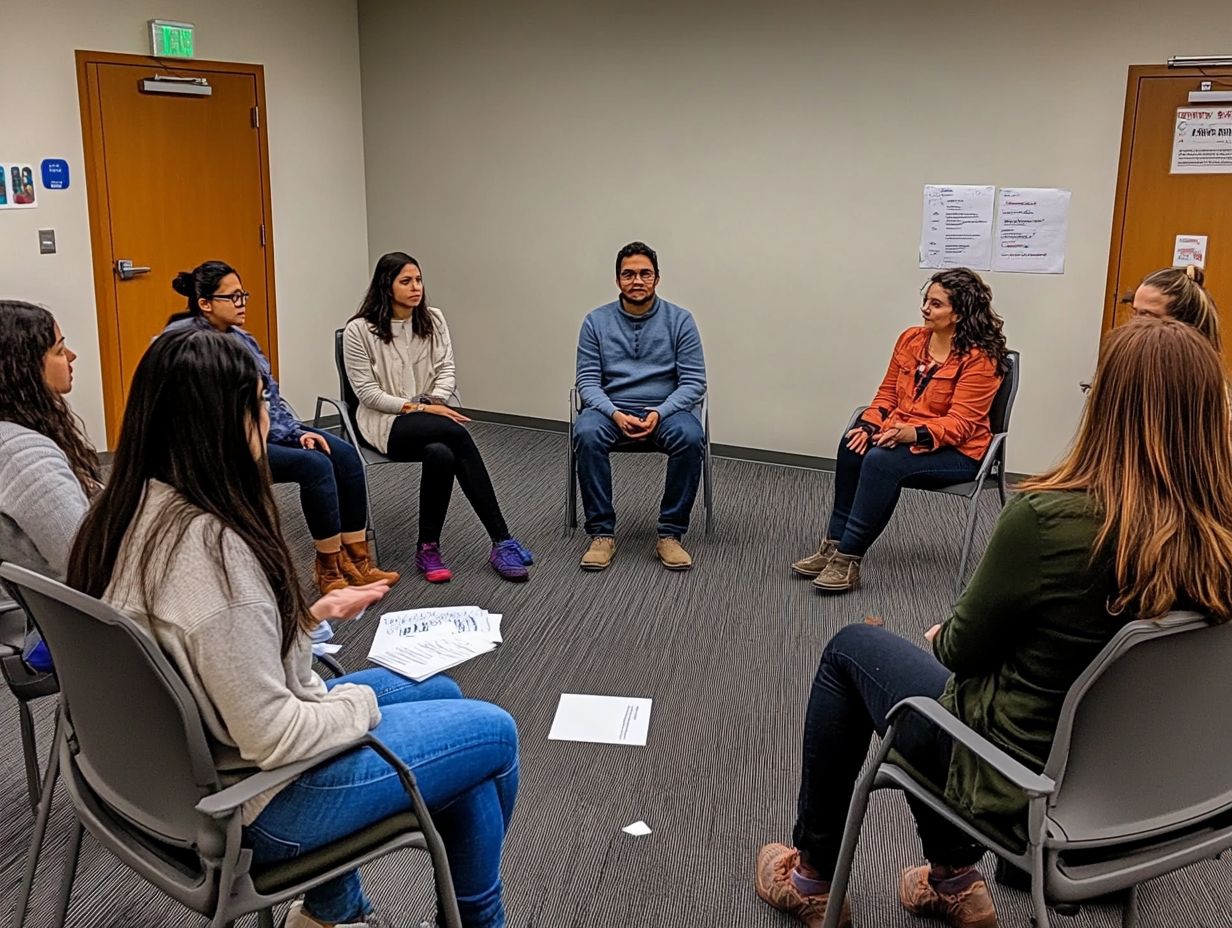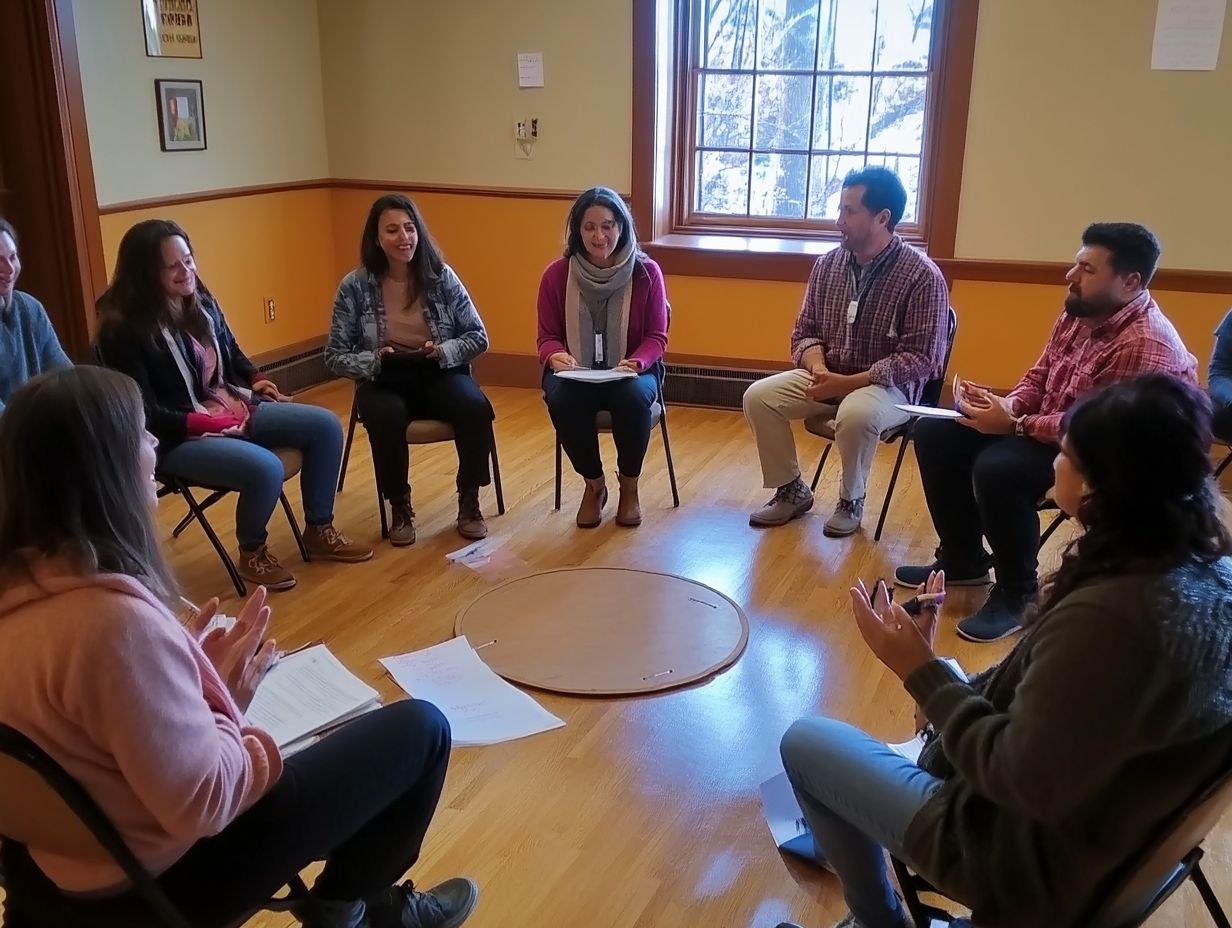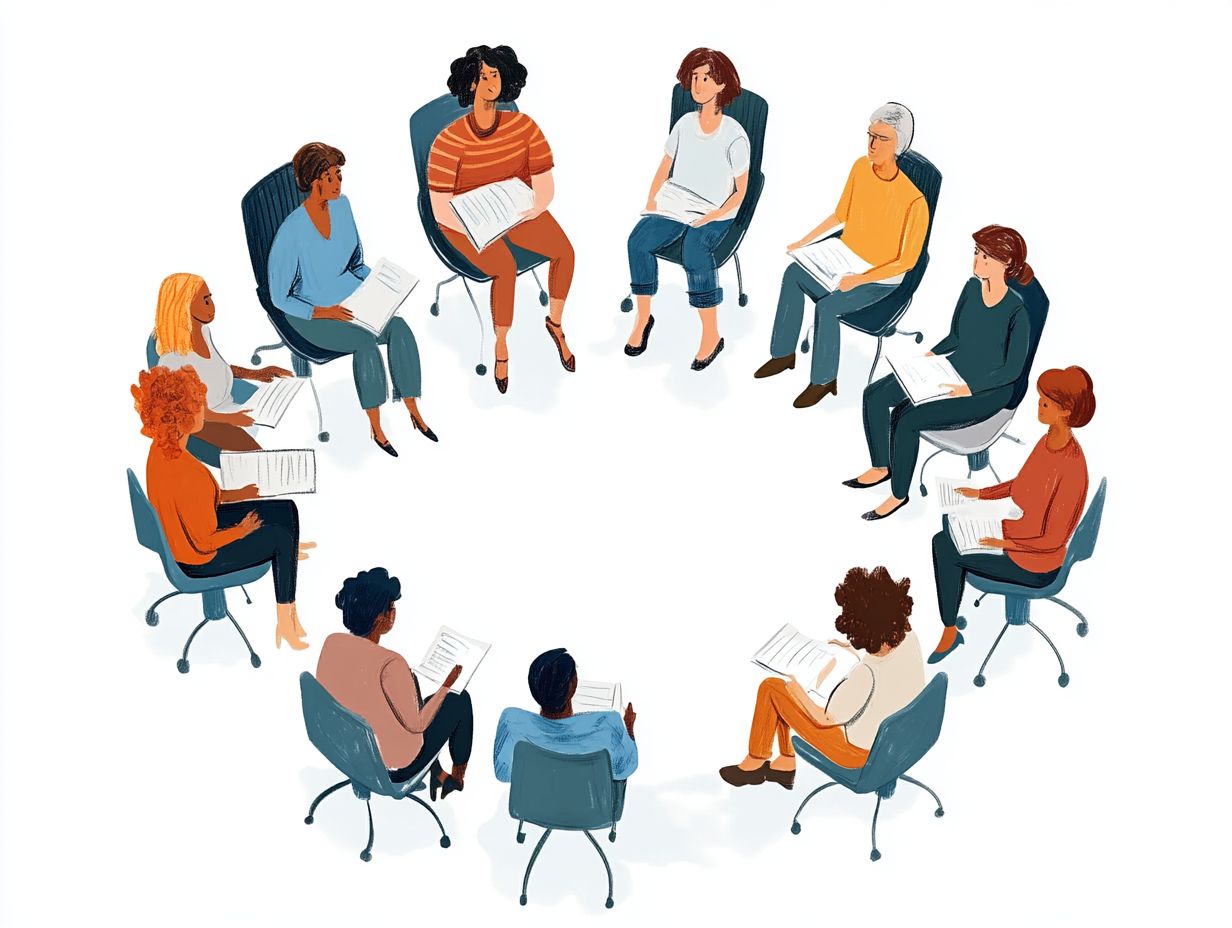What to Expect from Group Programs?
Group programs provide a unique collaborative environment where you can learn, grow, and forge connections with others who share similar interests or goals.
This article delves into the definition and purpose of these programs, exploring various types and their practical applications in the real world. It also highlights the benefits they offer, both individually and collectively.
You ll find important factors to consider before joining, along with tips for maximizing your experience.
Whether your aim is to enhance your skills or expand your network, this guide is designed to help you navigate the world of group programs with confidence and effectiveness.
Contents
- Key Takeaways:
- Understanding Group Programs
- Types of Group Programs
- Benefits of Group Programs
- Factors to Consider Before Joining a Group Program
- How to Get the Most out of a Group Program
- Frequently Asked Questions
- What can I expect to gain from participating in group programs?
- What types of activities are typically included in group programs?
- What should I do to prepare for a group program?
- How many people are typically in a group program?
- Are there any rules or guidelines for group programs?
- What if I feel uncomfortable or don’t connect with the other participants?
Key Takeaways:

- Group programs offer a supportive and collaborative environment for individuals to achieve their personal goals and objectives.
- Examples of group programs include support groups, educational classes, and team-building activities, which can be applied in various settings such as schools, workplaces, and communities.
- Participating in group programs can lead to both individual and group benefits, such as increased self-awareness, improved communication skills, and enhanced social connections.
Understanding Group Programs
Understanding group programs is crucial for both job candidates and employers. These structured frameworks enhance social skills and facilitate personal development and emotional support.
Often conducted in a group interview format, these programs encompass various therapeutic settings, including group therapy, which involves multiple people working together to promote effective communication and teamwork. They offer opportunities for self-awareness and problem-solving, allowing you to stand out in competitive job applications while fostering collaboration and trust within group dynamics.
Definition and Purpose
Group programs are thoughtfully structured environments crafted to enhance relationships with others and elevate group dynamics. They offer you emotional support and collaborative opportunities.
These initiatives create a space where you can engage in meaningful conversations, share your thoughts, and express your feelings freely. The emphasis often shifts to developing essential communication skills, giving you the power to articulate your ideas with clarity and confidence.
Such programs foster trust among participants, vital for authentic interactions and collective growth. By collaborating on shared goals and challenges, you cultivate empathy and understanding while nurturing a profound sense of belonging that can be truly transformative for everyone involved.
Types of Group Programs
You ll find a variety of group programs available, including group therapy, educational initiatives, and process groups, which are sessions focusing on group dynamics and personal experiences.
Each of these options caters to distinct needs and objectives, all while offering a structured support network for participants.
Examples and Applications

Group programs can take many forms, from therapy sessions focused on enhancing mental well-being to structured workshops tailored for job seekers looking to refine their interpersonal skills.
These collaborative initiatives often feature team-building activities that cultivate trust and promote effective communication among colleagues in the workplace. For example, companies may organize retreats where employees engage in problem-solving exercises, fostering camaraderie and boosting productivity.
In educational contexts, group projects not only cover the curriculum but also impart vital life skills such as collaboration and conflict resolution. By establishing a safe space for participants to share their experiences and insights, these programs act as catalysts for personal growth and community building across diverse environments.
Ready to boost your skills and meet new friends? Explore your options today and take the first step towards personal growth!
Benefits of Group Programs
Group programs provide a wealth of benefits that enrich both your personal growth and the dynamics within the group. They enhance emotional support, boost self-awareness, and refine your communication skills.
These programs also foster effective networking and collaboration among participants, creating a vibrant environment for shared learning and development.
Individual and Group Benefits
Engaging in group programs presents you with individual benefits like heightened self-awareness and improved emotional support.
On a collective level, these programs foster strengthened teamwork and enhanced collaboration.
As you immerse yourself in these programs, you ll find yourself in an environment that encourages you to articulate your feelings. It also promotes active listening to others, helping you understand and connect with them.
Navigating shared experiences with fellow participants often reveals relatable moments. This significantly boosts emotional resilience.
These group interactions pave the way for open dialogue. They foster stronger relationships and build trust among members.
The shared experiences not only enrich your personal development but also cultivate collective problem-solving and creativity. This ultimately nurtures an atmosphere of active participation and cooperative effort in various arenas be it personal, educational, or professional.
Factors to Consider Before Joining a Group Program
Before you join a group program, it s essential to reflect on factors like your personal goals, preferences, and emotional availability. These elements will profoundly influence your overall experience and level of engagement within the group.
Personal Goals and Preferences

Aligning your personal goals and preferences with the objectives of a group program is crucial for maximizing engagement and achieving the outcomes you desire. When you take the time to reflect on your aspirations and how they intertwine with the collective aims of the program, you enhance your self-awareness and cultivate meaningful connections with fellow participants.
This alignment amplifies your motivation and encourages collaboration within the group, enriching your overall experience. By grasping how your personal ambitions fit into the broader context of the program, you can navigate challenges more effectively and contribute positively.
Ultimately, this creates an environment where everyone’s strengths are acknowledged and utilized, fostering a sense of shared success.
How to Get the Most out of a Group Program
Want to get the most out of your group program? Dive in and enhance your engagement. This means actively participating, honing your communication skills, and employing feedback strategies that will elevate your overall experience.
Embrace these elements, and you’ll unlock the full potential of the program.
Tips for Success and Engagement
Success in group programs relies heavily on your active participation, effective communication skills, and a genuine commitment to personal growth and collaboration with your fellow members.
By adopting a proactive mindset, you can significantly enhance the dynamics of the group and make meaningful contributions to shared objectives.
One powerful strategy is to practice active listening; this not only builds trust but also encourages a vibrant exchange of ideas.
When you share your personal experiences, you can spark discussions that offer valuable insights, allowing others to relate and learn from your journey.
Setting collective goals can further strengthen engagement, transforming your individual aspirations into a compelling shared vision.
Reflecting on the feedback you receive from peers will help refine your communication skills and promote personal development. This ultimately fosters a more cohesive and productive group environment.
Frequently Asked Questions
Have questions? Join a group program today and unlock your potential!
What can I expect to gain from participating in group programs?

Participating in group programs offers you community, support, and accountability.
You will learn and grow with others while gaining valuable skills and insights about yourself!
What types of activities are typically included in group programs?
Activities in group programs can vary.
Common activities include discussions, exercises, and workshops focused on personal growth, setting personal goals, and problem-solving.
Some programs may even feature physical activities or team-building exercises to promote collaboration and communication.
What should I do to prepare for a group program?
Familiarize yourself with the program’s goals and expectations before you start.
Set personal goals and be open to sharing and participating in discussions and activities. Come with an open mind and a willingness to learn!
How many people are typically in a group program?
The number of participants can vary widely.
Some programs may have small groups of 5-10 people, while others may include 20 or more. Consider your preferences when choosing a program, as group size can affect dynamics and interaction.
Are there any rules or guidelines for group programs?
Yes, there are usually rules and guidelines to ensure a safe and respectful environment for everyone.
These may cover confidentiality, respectful communication, and participation expectations. Be sure to familiarize yourself with these rules and follow them during the program!
What if I feel uncomfortable or don’t connect with the other participants?
Feeling uncomfortable or struggling to connect initially is completely normal.
Communicate any concerns with the facilitator or program leader. They can provide support and guidance to help you feel more comfortable and connected with the group.





